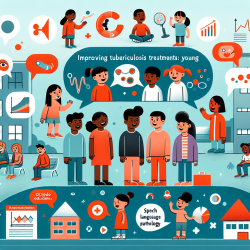Unlocking the Power of Global Collaboration in Speech-Language Pathology
As practitioners in the field of speech-language pathology, we constantly strive to enhance our skills and improve outcomes for children. One way to achieve this is by learning from global collaborative efforts, such as the World Health Organization's (WHO) revision of the International Classification of Diseases (ICD). This case study provides valuable insights into how international teams overcome challenges to achieve their goals, which can be applied to our own practices.
The Study: A Model for Success
The research article titled "Global Collaborative Team Performance for the Revision of the International Classification of Diseases" explores the dynamics of the WHO Field Studies Coordination Group (FSCG). The study utilized the input-processes-output (IPO) model to understand the team's performance in revising the ICD. This model can be a powerful tool for practitioners looking to improve their collaborative efforts.
Key Takeaways for Practitioners
Here are some actionable insights from the study that can help speech-language pathologists enhance their practice:
- Diverse Teams: Embrace diversity in your team. Different perspectives can lead to innovative solutions and a more comprehensive understanding of complex issues.
- Effective Communication: Establish clear communication channels and encourage open dialogue among team members to facilitate understanding and collaboration.
- Shared Goals: Align your team's efforts with common objectives. This ensures that everyone is working towards the same outcomes, enhancing team cohesion and productivity.
- Adaptability: Be prepared to adapt to new challenges and changing circumstances. Flexibility can lead to more effective problem-solving and better outcomes.
Encouraging Further Research
The study highlights the importance of continued research in global mental health collaboration. By understanding the successes and challenges of international teams, we can develop better strategies for collaboration in speech-language pathology. I encourage practitioners to delve deeper into this research and consider how these insights can be applied to their own work.
Conclusion
By learning from the WHO's collaborative efforts, speech-language pathologists can improve their own team dynamics and ultimately enhance outcomes for the children they serve. The insights from this study are not only applicable to global teams but can also be adapted to local practices.
To read the original research paper, please follow this link: Global Collaborative Team Performance for the Revision of the International Classification of Diseases: A Case Study of the World Health Organization Field Studies Coordination Group.










